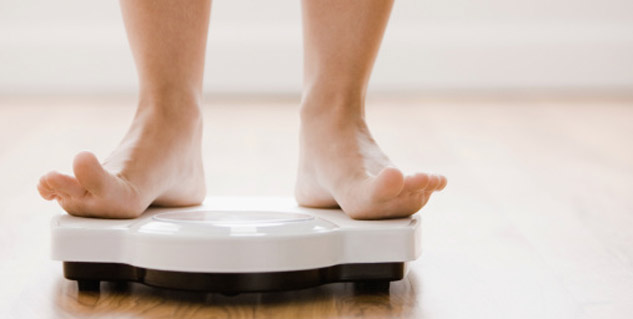Slow Metabolism? Check Your Hormones
 When it comes to weight gain, blame it on the hormones. Based on research published by the Journal Of the American Medical Association, Mehmet Oz, M.D., known as TV’s Dr. Oz, explains that four major hormones are responsible for how and where the body stores fat. An imbalance in your cortisol, testosterone, estrogen and insulin hormone levels can slow down your metabolism and trigger weight gain.
When it comes to weight gain, blame it on the hormones. Based on research published by the Journal Of the American Medical Association, Mehmet Oz, M.D., known as TV’s Dr. Oz, explains that four major hormones are responsible for how and where the body stores fat. An imbalance in your cortisol, testosterone, estrogen and insulin hormone levels can slow down your metabolism and trigger weight gain.
“If your level of any of the essential hormones is too high, you need to reduce it. If your level is too low, you need to raise it,” explained Dr. Tami Meraglia, a weight-loss expert and author of The Hormone Secret.
READ: Blast Belly Fat!
If you have trouble losing weight in key areas, or notice the pounds creeping on easier, read on to see if your hormones are out of balance and what simple changes you can make to get them back in check.
1. High Cortisol
Problem Area: Bloated belly
Nicknamed ” the stress hormone,” cortisol can be a significant contributor to weight gain. When we’re stressed out, the body responds as if we’re starving and releases cortisol. High cortisol levels take the blood sugar your body is converting and places it into fat for long-term storage, usually around the midsection. Left unaddressed, cortisol in abundance increases the risk of diabetes and heart disease.
Symptoms of a cortisol imbalance include:
- Weight gain, specifically around your stomach area (even if you are eating healthy and exercising)
- Difficulty sleeping and feeling tired after you have slept well
- Thinning hair
- Dull skin
- Low sex drive
- Constipation or diarrhea
Problem Solved!
Reducing stress is the best way to lower your cortisol levels. When you wake up in the morning, your cortisol levels are higher than normal. When you eat food first thing after waking up, you metabolize food slower. Instead, get in a quick workout, like yoga, which will help you decrease some of your stress and lower your cortisol levels.
Eat an hour or two after your workout, a more optimal time for your body to burn fat. Skip the coffee, which can raise your cortisol. Ideal foods for cortisol reduction include leafy greens and oatmeal.
2. Low testosterone
Problem area: Stubborn upper arm flab
Women produce and need testosterone, too. Testosterone is important because it helps you to grow your muscles which support your metabolism functioning properly. Low testosterone and an overload of estrogen can increase your insulin insensitivity which creates the opposite effect, causing weight gain.
Signs of low testosterone can include:
- Fatigue and exhaustion, even after a full night’s sleep
- Difficulty losing weight and weight gain
- A low libido
- Mood swings and depression
- Being anxious or having a lack of focus
- Hair loss
Problem solved!
Daily, moderate exercise, specifically weight training or walking 30 minutes, can help raise your testosterone or T levels. Having a healthy sex life and having sex once a week helps to elevate and increase your T levels. Sleep at least 7 – 9 hours a night. Eat foods that are rich in zinc like beans, nuts, seafood and whole grains.
-
4 Ways Your Hormones Can Help You Reach Your Weight Loss Goals
Hormones play a key role
-
The Disadvantages of the “Quick Weight Loss Diets” Trend
Quite often, a lot of overweight people who decide to embark on a weig
-
Excellent Food Items For Losing Weight
Lots of individuals ponder whether or no
-
7 Ways to Burn Belly Fat
One of the most common questions I get i
-
What Is The Best Way To Burn Belly Fat?
If you have been struggling to get a fla
-
Weight loss Solution - 6 Simple steps to Fast Weight Loss!
Regrettably obesity is killing almost 40
- DON'T MISS
- Enjoy The Appealing Method To Lose Unwanted Weight: Secrets From The Food Lovers Diet Reviews
- Use Local Distractions To Help You Stick To Your Diet While On Vacation
- The Mayo Clinic Healthy Weight Pyramid A Way To Live Your Life
- Steps That Need To Be Followed For A Successful Weight Loss Plan
- Do You Really Want To Stop Smoking Or Do You Use The Weight Gain Excuse
- 5 Things Most People Get Wrong About Hormones: A Doctor Explains
- Obesity: Unhealthy and unmanly
- How to Lose Weight by Executing a Fat Loss Training Program
- Guava: The nutritional superfruit
- Diet Sodas Losing Weight Is Diet Coke Good Or Dangerous For Healthy Weight Loss




